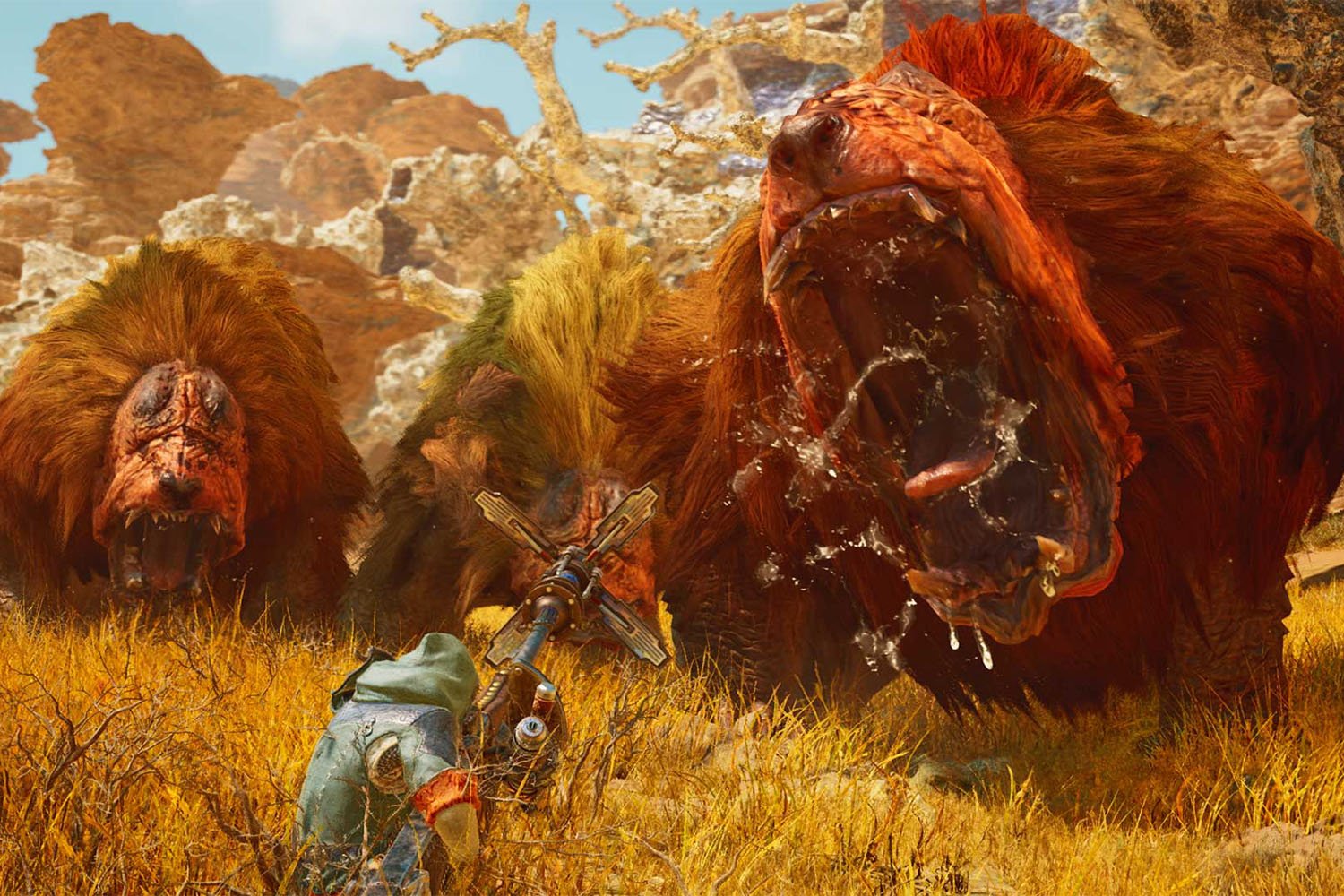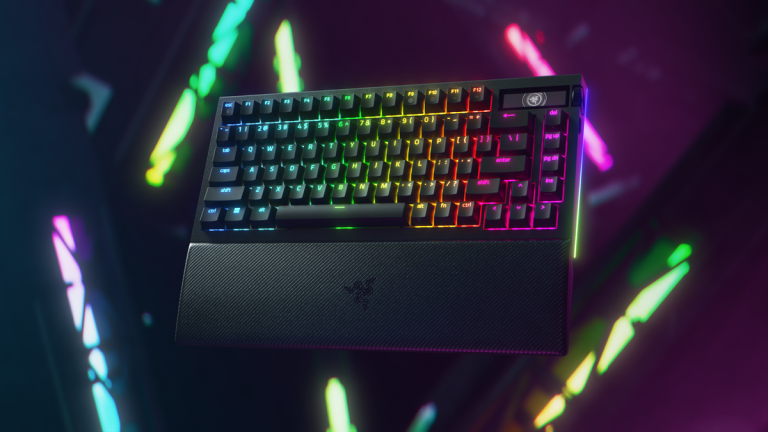Monster Hunter Wilds Hands On

Monster Hunter Wilds, at its core, is all about using every last part of the beasts you hunt. You tear off chunks of flesh, fur, skin, and bones for your armaments, apparel, and for cooking a delectable meal. Why not use the beasts’ excrement in a similarly thrifty way? One of the early missions for the upcoming open-world single/multiplayer RPG asks you to use a new resource called “Large Dung” to fling it at a roving pack of beasts. This scatters them, making the “alpha” a far easier target as he moves to a solitary clearing.
Large dung could be especially important if you plan to fight alone rather than with a gaggle of other player characters. Like past titles, you can call in some NPCs, but if you don’t have a group of friends willing to kite the smaller beasties, this is how you fight multiple creatures at once. That, plus the addition of NPC companions you can call on during fights, indicates the direction of Monster Hunter Wilds in heading. The developers want this game to be enjoyable, whether you have friends willing to kill gigantic monsters or not.
I spent about an hour and a half with the game through two separate demos. Yes, of course, I sat there in front of my demo session, giggling like a pre-teen, and I launched a large dust cloud of petrified effluent at my enemies. Then, as I sunk further into the classic flashy animations and roll-around combat of Wilds, the sense I got from Capcom’s is one of refinement (though perhaps not in that definition of civil propriety, hence the poop).
Monster Hunter Wilds is Made For Solo Players as Well as Co-Op
This game is very similar to 2018 Monster Hunter: World and 2021’s Monster Hunter Rise. The new titles’ big ideas don’t change much, or any, of the formula. On their face, however, it does make for a better time overall. You get the sense of this quickly enough. The game’s opening sequence is straightforward. You’re a hunter. You hunt monsters. You’re tasked with traveling to the “Forbidden Lands” to—well—do what you do best, and perhaps along the way, find a missing expedition and protect some fellow humans along the way.
The game launches into a protracted chase sequence centered on a new trusty mount, the Seikret. You can fire off your ranged weapons or perform simple slashes from your mobile perch. It also allows you to access two weapons without returning to your hunter village for restocking. It’s not nearly as detailed a system as your horse from Red Dead: Redemption II, but you find the Seikret is as loyal and helpful a steed as you need when the objective is to go from place to place, killing monsters.
The Seikret can auto-climb as well as your Hunter can, though it still moves with similar weightiness as your player character. It’s been a while since I played a game where characters don’t turn on a dime, and it takes a while to get used to, I also found the Seikret has two modes of movement, a steady jog/run, or a lethargic waltz like you’re moving through a swamp. If I wanted to stop and pick up a plant or a bug, I sometimes had to wrestle with the beast underneath just to pick up that resource without jumping off.
At the very least, the combat is more responsive than ever. I can’t stand games that don’t let you cancel out of attack animations. Enemies that attack you before you finish your swing are what drove me mad in a game like 2019’s Star Wars Jedi: Fallen Order. With the latest Monster Hunter, it’s far easier to cancel out animations with a dodge roll. This saved me so much aggravation, especially as I got used to the different combos and attacks for weapons, including the Longsword or the Insect Glaive.
Oh, yes, the glaive was certainly my favorite weapon that I used by far. The glaive is now a simpler weapon than past titles, though the aerial attacks look epic. Compare that with the longsword, which offers more combo opportunities but feels rather staid in comparison. The core of the gameplay remains the same as Monster Hunter: World, and combos and wound-targeting will still net you the maximum damage you need to take on foes. It’s still satisfying as hell when you manage to jump off a mount onto a crawl beast’s back and do extra damage.
Monster Hunter Wilds Has Some Impressive Atmosphere
It’s a deep system that’s grown even more esoteric with the new timing mechanics. Attacking at the right time, just before a beast attacks, results in extra damage. In my short playthrough, I also experienced a flash of the dynamic weather when a very, very sudden thunderstorm struck my target with a brilliant flash of lightning, damaging it and scattering it back to its hovel. The weather passed unexpectedly fast, and I also wondered in what other ways it will affect combat encounters.

You can glean how much has changed in Monster Hunter Wilds and what hasn’t. I hope the rest of the game is centered on this brown-and-tan color palette. It’s certainly not my kind of RPG, not when the only conflict is between you and the monsters whose habitat you invade. So far, the bare glimpse of a story didn’t leave me enticed—nor did the characters and their incredibly bland and friendly demeanor.
The minute-to-minute gameplay remains the draw. I still don’t know if this game would be nearly as fun alone as with friends, even with the ability to summon NPCs to fight alongside. There’s a visceral joy in tracking your mark from place to place on the back of your Seikret, but it will still be more fun when your fellow players can focus on different weapon combos and builds. Plus, I desperately want to throw “Large Dung” at my friends… I can’t be the only one, right?
Monster Hunter Wilds should arrive 2025 on PlayStation 5, PC, and Xbox Series X/S.
Source: gizmodo.com





